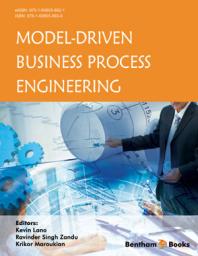(Ebook) Model-Driven Business Process Engineering by Kevin Lano; Ravinder Singh Zandu; Krikor Maroukian ISBN 9781608058921, 1608058921
Model Driven development (MDD) is a software and systems development model that involves the application of visual modeling principles and best practices throughout the System Development Life Cycle (SDLC). These models enhance the efficiency and security of software by extracting technical details of specific platforms, database administration, distribution scenarios, etc.. MDD empowers developers to concentrate on business logic and design software in alignment with favorable business objectives. These models are then brought into a translation stage by coding a series of model transformations in a high level programming language which provides an entire accomplishment of the specified business logic on a certain platform with the help of a set of supporting technologies. Model transformations are a core element of model-driven development, allowing the improvement of systems from specification to implementation, and the quality enhancement of specifications. Model transformations are generally expressed by using specification languages specially designed for the progress of transformations. MDD and model-transformation languages are now adequately fully developed to begin to be utilized in industrial practice. This leads to the advancement complex transformations and initiates a need for sustaining and emerging transformation specifications - including platforms, languages and other factors. Model-Driven Business Process Engineering surveys the latest model transformation specification and composition techniques, and also provides guidelines for the practical application of model transformations to large transformation issues to the readers. The ebook comprises of chapters written by paramount experts in the field of model transformation. It comprehensibly explains the main techniques that define model transformation composition and evolution. Starting from the structuring and modularisation of model transformations, the eBook covers the composition techniques for model transformations (external and internal composition). The book also features chapters covering the evolution of metamodels and model transformation approaches such as ATL, ETL, QVT, Viatra and Kermeta, which are currently in industrial use on a broad scale. Model-Driven Business Process Engineering is a useful reference intended for novice developers and working professionals seeking information on current practices in MDD and model transfoModel Driven development (MDD) is a software and systems development model that involves the application of visual modeling principles and best practices throughout the System Development Life Cycle (SDLC). These models enhance the efficiency and security of software by extracting technical details of specific platforms, database administration, distribution scenarios, etc.. MDD empowers developers to concentrate on business logic and design software in alignment with favorable business objectives. These models are then brought into a translation stage by coding a series of model transformations in a high level programming language which provides an entire accomplishment of the specified business logic on a certain platform with the help of a set of supporting technologies. Model transformations are a core element of model-driven development, allowing the improvement of systems from specification to implementation, and the quality enhancement of specifications. Model transformations are generally expressed by using specification languages specially designed for the progress of transformations. MDD and model-transformation languages are now adequately fully developed to begin to be utilized in industrial practice. This leads to the advancement complex transformations and initiates a need for sustaining and emerging transformation specifications - including platforms, languages and other factors. Model-Driven Business Process Engineering surveys the latest model transformation specification and composition techniques, and also provides guidelines for the practical application of model transformations to large transformation issues to the readers. The ebook comprises of chapters written by paramount experts in the field of model transformation. It comprehensibly explains the main techniques that define model transformation composition and evolution. Starting from the structuring and modularisation of model transformations, the eBook covers the composition techniques for model transformations (external and internal composition). The book also features chapters covering the evolution of metamodels and model transformation approaches such as ATL, ETL, QVT, Viatra and Kermeta, which are currently in industrial use on a broad scale. Model-Driven Business Process Engineering is a useful reference intended for novice developers and working professionals seeking information on current practices in MDD and model transformations in todays global and commercial environment
*Free conversion of into popular formats such as PDF, DOCX, DOC, AZW, EPUB, and MOBI after payment.


